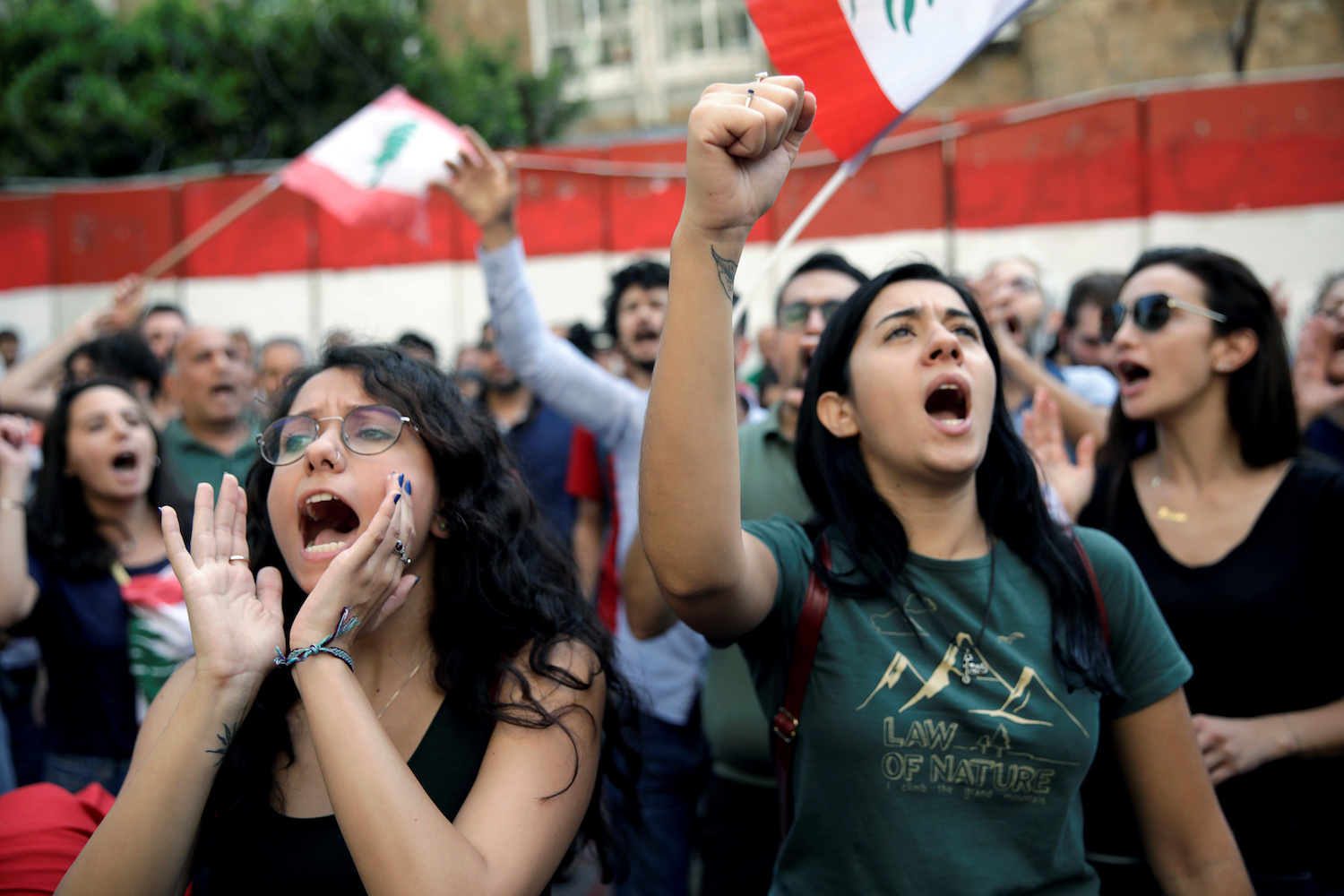Lebanese police to boost security near banks amid unrest
BEIRUT: Lebanese security forces will boost measures near the country’s banks that have been closed for more than a week over fears by employees for their safety amid nationwide unrest, police said Saturday.
Police said in a statement that there will be more patrols near banks and two policemen will be stationed outside every branch.
Lebanon’s financial troubles have worsened since mass protests began on Oct. 17 over a plunging economy, and snowballed into calls for the entire political elite to step down.
An Interior Ministry statement said police commander Maj. Gen. Imad Othman met with banking officials and they agreed to take the measure “in order to guarantee the work of this vital sector.”
Banks reopened Nov. 1 after a two-week closure because of the mass anti-government protests. But depositors have rushed to withdraw their money while lenders imposed varying capital controls, adding to the turmoil.
In some banks, customers insulted employees after they were told they cannot withdraw as much money as they want. The banks closed again on Nov. 9, and employees have been on strike since then.
Lebanon is passing through its worst economic and financial crisis in decades. The small Arab country is one of the most heavily indebted countries in the world and was already dealing with a severe fiscal crisis before the protests began, one rooted in years of heavy borrowing and expensive patronage networks run by entrenched political parties.
The Lebanese pound is trading at up to 1,900 to the dollar on the black market, a devaluation of nearly 30% from the official rate that has been fixed since 1997.
Confidence in the Lebanese economy received another blow late Friday night when Standard & Poor’s downgraded the country’s credit ratings to ‘CCC/C’ from ‘B-/B’.
The agency said the outlook for Lebanon is negative in what “reflects the risk to the sovereign’s creditworthiness from rising financial and monetary pressures tied to widespread protests and the resignation of the government.”
Prime Minister Saad Hariri resigned his government on Oct. 29, meeting a key demand of the protesters. Since then President Michel Aoun has failed to call for consultations with heads of parliamentary blocs to name a new premier, raising concerns that the formation of a new Cabinet could be delayed.
“Recent temporary but prolonged bank closures and unofficial foreign currency transfer restrictions raise questions about the sustainability of the exchange rate regime, further eroding confidence,” S&P warned.

S&P downgrades protest-hit LebanonMedics protest economic crisis in Lebanon



